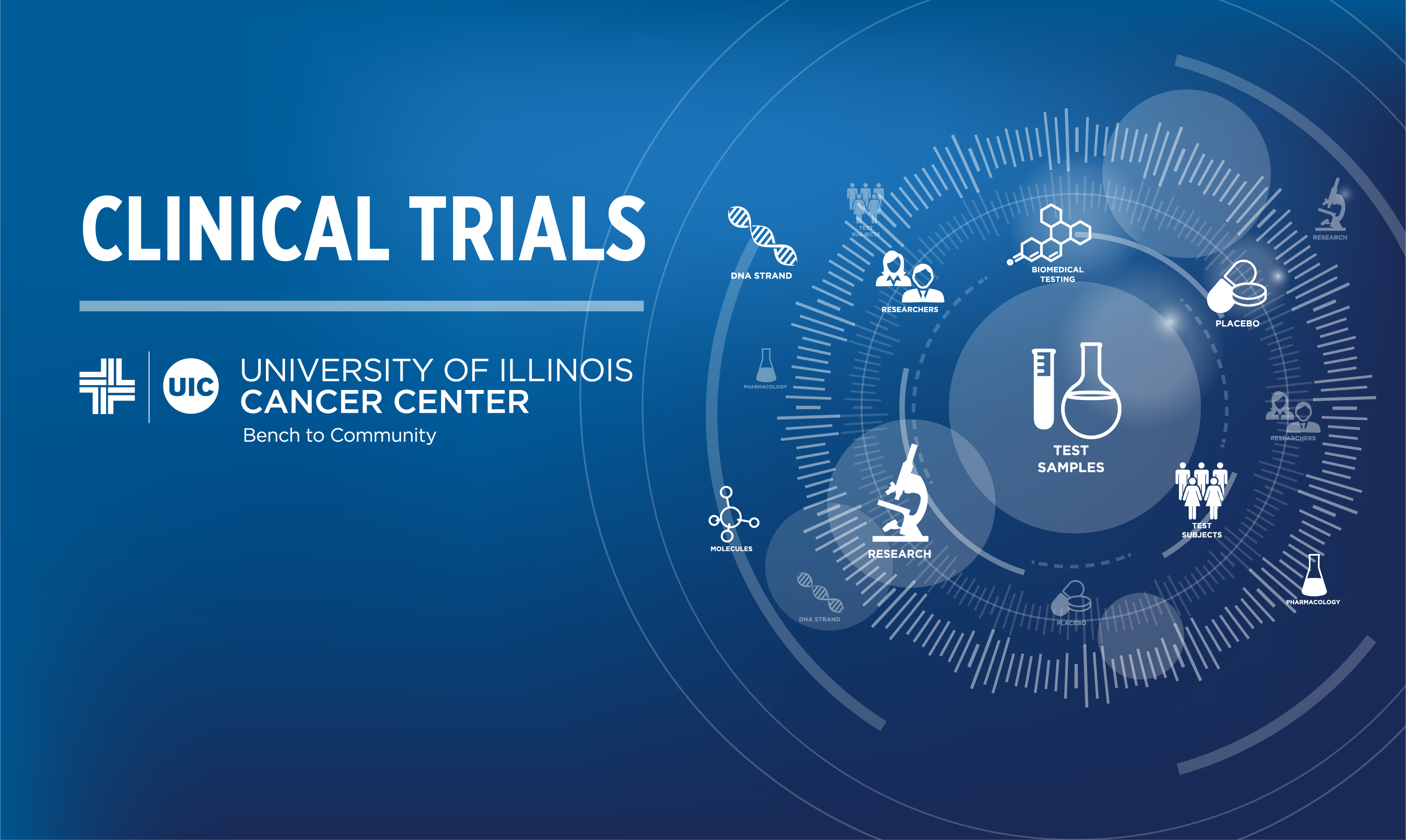
The University of Illinois Cancer Center’s Clinical Trials Office (CTO) has seen significant growth in staff during an 18-month reorganization, but health care experts aren’t the only new additions. The office has also seen an increase in the number of patients enrolled in clinical trials.
“We’re on track to double our treatment accrual from last year,” said Darlene Kitterman, administrative director of the UI Cancer Center’s clinical trials office. “We currently have more than 50 enrolling therapeutic trials, plus non-therapeutic and supportive care trials.”
Between 2017 and 2018 (to date), the CTO has experienced a 51 percent increase in interventional treatment accrual – from 43 to 65 – and “we’re on track to be at about 86 treatment accruals by the end of the year,” said Kitterman, who came to the UI Cancer Center from Oregon Health Sciences University last year.
The UI Cancer Center CTO provides study management services to UIC faculty who are conducting clinical research related to the prevention, diagnosis or treatment of cancer. The office’s staff, which include regulatory and budget specialists; clinical research and data coordinators; a quality assurance and education specialist; and clinical research managers, assist with every facet of a trial, from managing the start-up process (budget development and negotiation, Protocol Review Committee submission; Institutional Review Board submission); clinical research coordination; data management; and quality assurance monitoring, among others tasks.
During the reorganization, numerous processes have been implemented that has allowed the office to experience a 23 percent decrease in the time it takes to activate a clinical trial – from 142 days in 2016 to 109 days in 2017, with a goal to eventually lower the average to about 90 days, said Oana Danciu, MD, associate professor of medicine at UI Health and medical director of the UI Cancer Center clinical trials office.
“We’ve hired a new start-up specialist, revised our standard operating procedures, implemented a quality assurance program, begun feasibility meetings, where every detail is covered in opening a trial and, importantly, we’ve created disease teams, which meet monthly to review proposed trials and open trials to review accruals,” Danciu said.
The clinical trials office is searching for any avenue to increase its efficiency, and one way has been the utilization of the online software program OnCore Clinical Trials Management System to manage all of the cancer-related studies. It is available to all faculty performing cancer clinical research and is customized based on the needs of the research studies. Its functions include managing protocols, patients, data, and finances. At a minimum, OnCore is required for all cancer related study submissions to the UI Cancer Center Protocol Review Committee, and to track participant enrollment and status for required National Cancer Institute reporting and, if required, Data and Safety Monitoring Committee (DSMC) oversight.
The reorganization, Kitterman said, is nearing completion. “We still need to fill some holes, but we’re trending in the right direction. It’s been an exciting time.”
